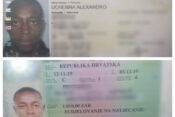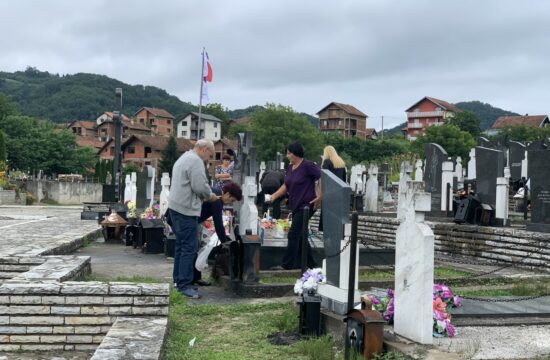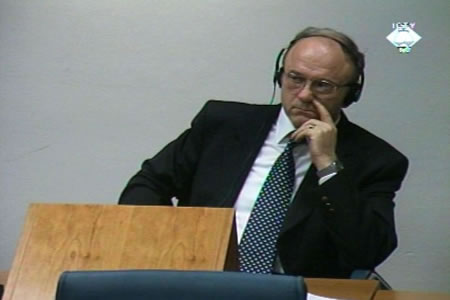
The application of European Union's laws in individual cases is a matter for national authorities and the European Commission enjoys the limited authority to carry out investigations in individual cases, the Commission said responding to a Green Group parliamentarian on the case of Nigerian students who ended up in a Bosnia's migrant camp late last year after attending a sports event in Croatia.
Abia Uchenna Alexandro and Eboh Kenneth Chinedu, both 18 years old, represented the Federal University of Technology Owerri at the 5th World InterUniversities Championships between November 13 and 17 of November in the coastal town Pula, Croatia. Their visas were valid between November 12 and December 3.
But, upon the return to Zagreb, where they were awaiting their flight back to Lagos on November 18, the Nigerians were apprehended by the police and, according to them, brought to the Bosnian border and forcibly pushed to Bosnian territory alongside a group of illegal migrants.
Speaking to local media in Bosnia, Chinedu said they had tried to explain the police their passports were valid and were in the hostel where they stayed, but the officers paid no attention.
After clarifying their status during the stay in Bosnia, the Nigerians said they wanted to have UN escorts to Croatia, from where they were supposed to fly back home.
The police in Croatia denied the allegations and any wrongdoing towards the students, but the story sparked interest across the region and the world, with numerous outlets covering the story.
Tineke Stirke, the Green Group representative in the European Parliament, raised the issue and asked the Commission if they requested information from the Croatian Government on the Nigerian's deportation and if the country's authorities complied with the Schengen Broders Code during the deportation.
Strik also asked if the Commission agreed that the deportation to Bosnia was not compliant with relewant EU law.
“The application of EU law to individual cases is a matter for national authorities under the control of national courts. The Commission enjoys limited authority to carry out investigations in individual cases and cannot substitute its appreciation to the findings and assessments of national authorities. It may bring an infringement proceeding against a Member State if it believes that it has breached Union law,” the Commission said.
“In the case of an administrative practice, which infringes Union law, the jurisprudence of the Court of Justice requires the Commission to provide sufficiently documented and detailed evidence of the existence of an offending administrative practice, which must be, to some degree, of a consistent and general nature. Citizens play an essential role in this context and are encouraged to lodge complaints. However, an offending administrative practice of a consistent and general nature cannot be established on the basis of a single case, as the incident mentioned by the Honourable Member,” said the response.
“The Commission cannot reply to the questions raised on behalf of the Croatian authorities. The Schengen evaluation of Croatia took place in accordance with Regulation (EU) No 1053/2013 and it was found, during the evaluation process, that Croatia had taken the measures needed to ensure that the necessary conditions for the application of the Schengen acquis were met,” it added.
Abia Uchenna Alexandro and Eboh Kenneth Chinedu, both 18 years old, represented the Federal University of Technology Owerri at the 5th World InterUniversities Championships between November 13 and 17 of November in the coastal town Pula, Croatia. Their visas were valid between November 12 and December 3.
But, upon the return to Zagreb, where they were awaiting their flight back to Lagos on November 18, the Nigerians were apprehended by the police and, according to them, brought to the Bosnian border and forcibly pushed to Bosnian territory alongside a group of illegal migrants.
Speaking to local media in Bosnia, Chinedu said they had tried to explain the police their passports were valid and were in the hostel where they stayed, but the officers paid no attention.
After clarifying their status during the stay in Bosnia, the Nigerians said they wanted to have UN escorts to Croatia, from where they were supposed to fly back home.
The police in Croatia denied the allegations and any wrongdoing towards the students, but the story sparked interest across the region and the world, with numerous outlets covering the story.
Tineke Stirke, the Green Group representative in the European Parliament, raised the issue and asked the Commission if they requested information from the Croatian Government on the Nigerian's deportation and if the country's authorities complied with the Schengen Broders Code during the deportation.
Strik also asked if the Commission agreed that the deportation to Bosnia was not compliant with relewant EU law.
“The application of EU law to individual cases is a matter for national authorities under the control of national courts. The Commission enjoys limited authority to carry out investigations in individual cases and cannot substitute its appreciation to the findings and assessments of national authorities. It may bring an infringement proceeding against a Member State if it believes that it has breached Union law,” the Commission said.
“In the case of an administrative practice, which infringes Union law, the jurisprudence of the Court of Justice requires the Commission to provide sufficiently documented and detailed evidence of the existence of an offending administrative practice, which must be, to some degree, of a consistent and general nature. Citizens play an essential role in this context and are encouraged to lodge complaints. However, an offending administrative practice of a consistent and general nature cannot be established on the basis of a single case, as the incident mentioned by the Honourable Member,” said the response.
“The Commission cannot reply to the questions raised on behalf of the Croatian authorities. The Schengen evaluation of Croatia took place in accordance with Regulation (EU) No 1053/2013 and it was found, during the evaluation process, that Croatia had taken the measures needed to ensure that the necessary conditions for the application of the Schengen acquis were met,” it added.







